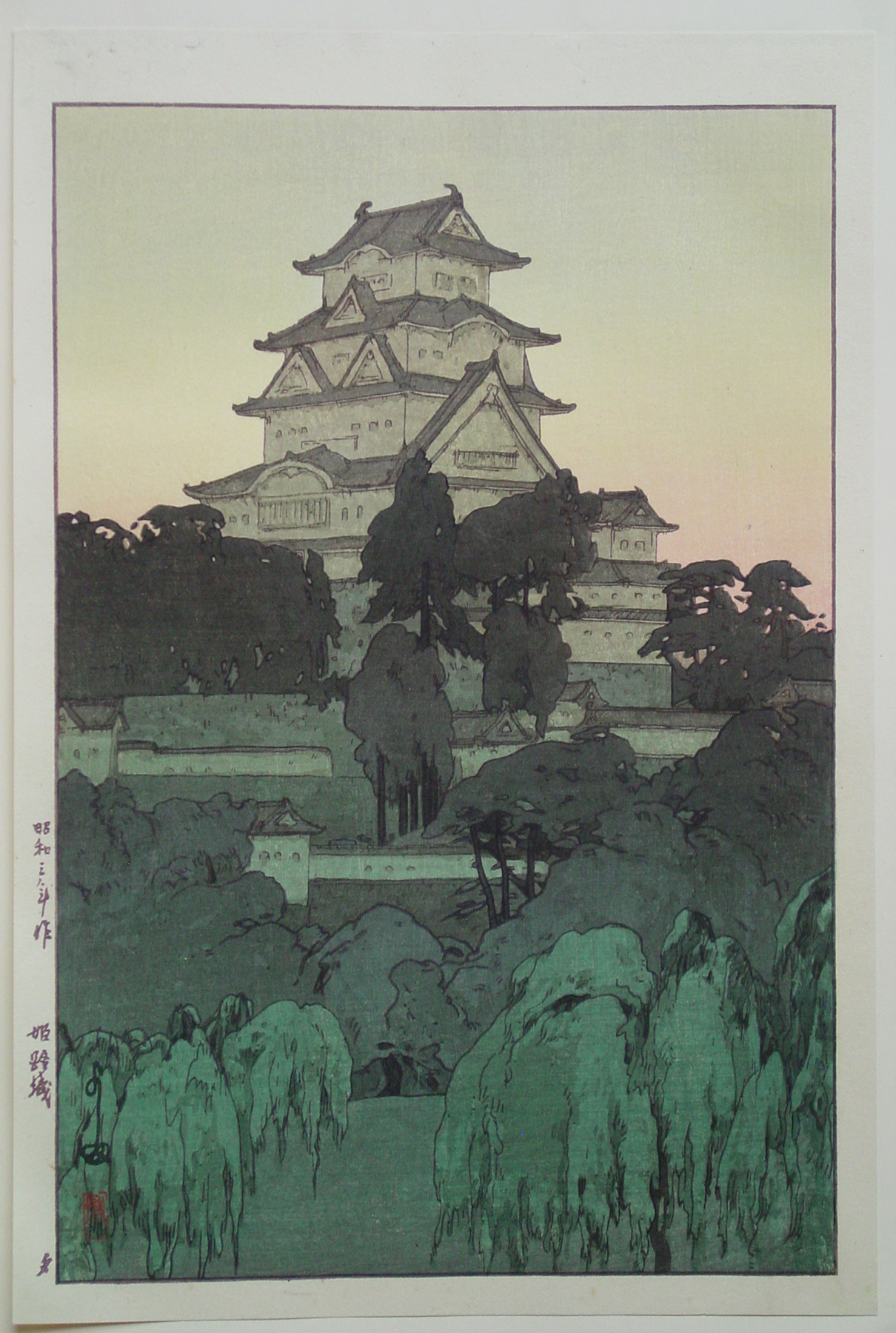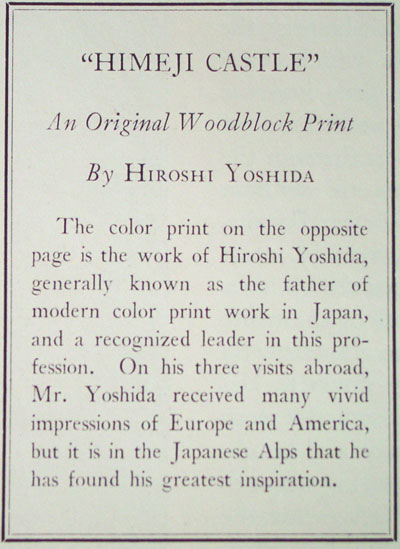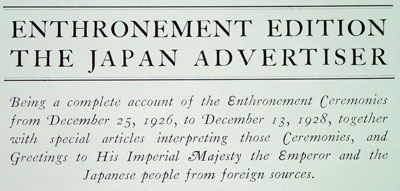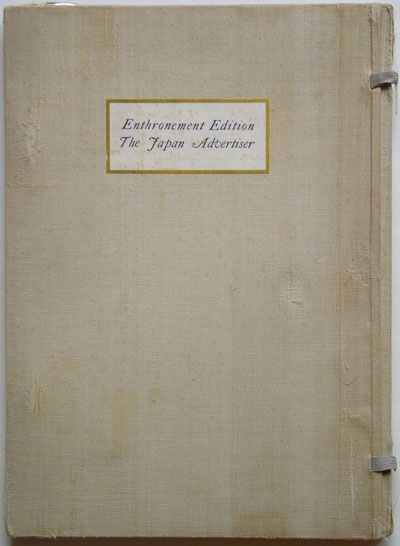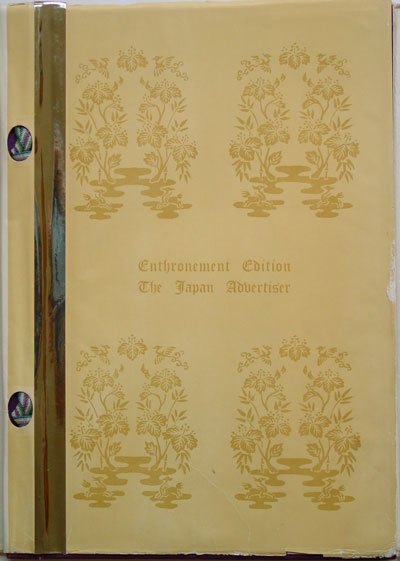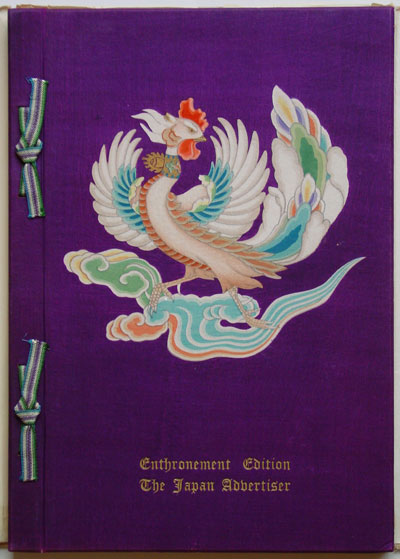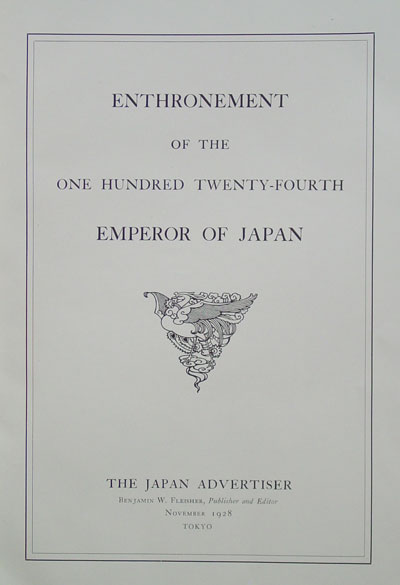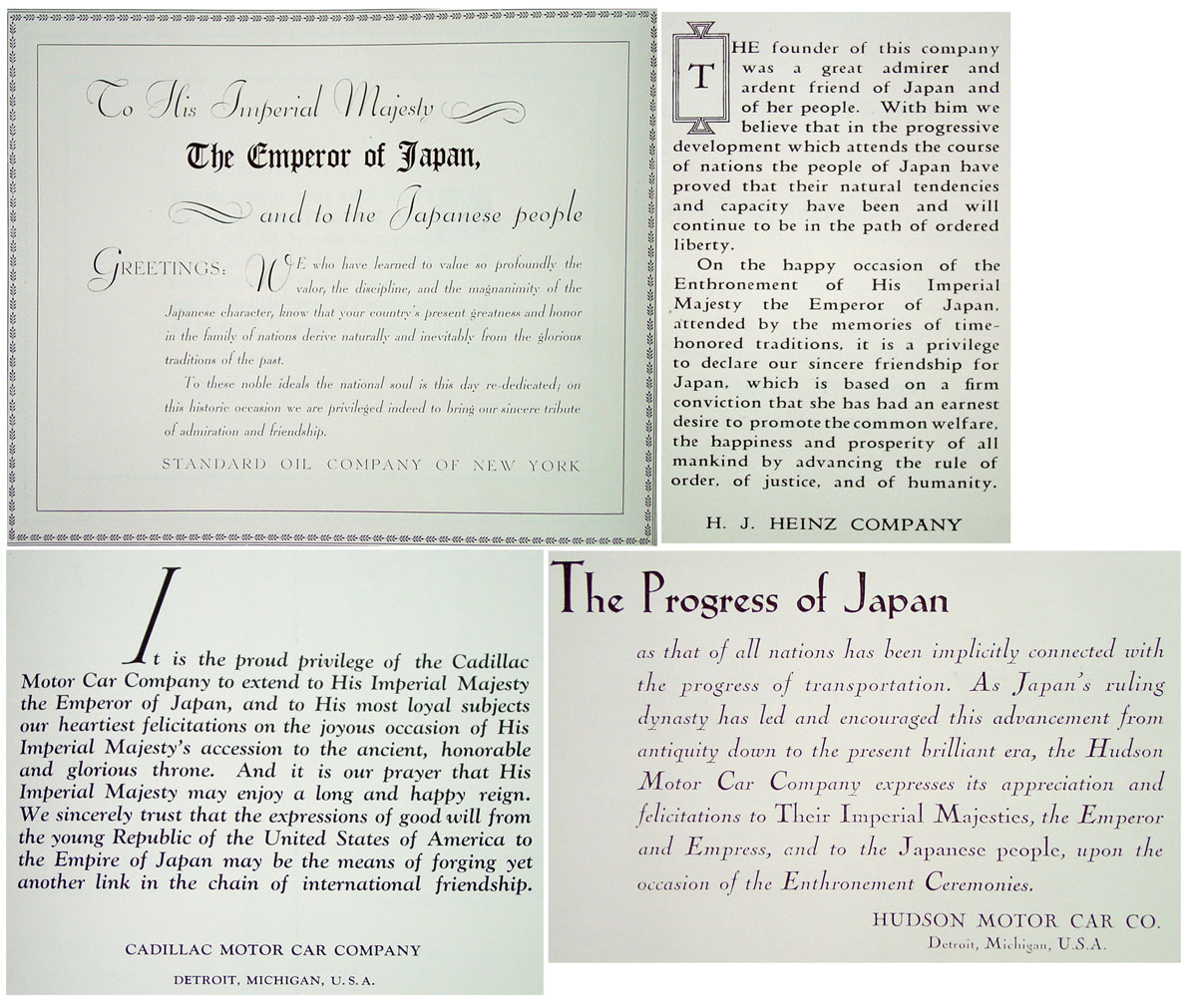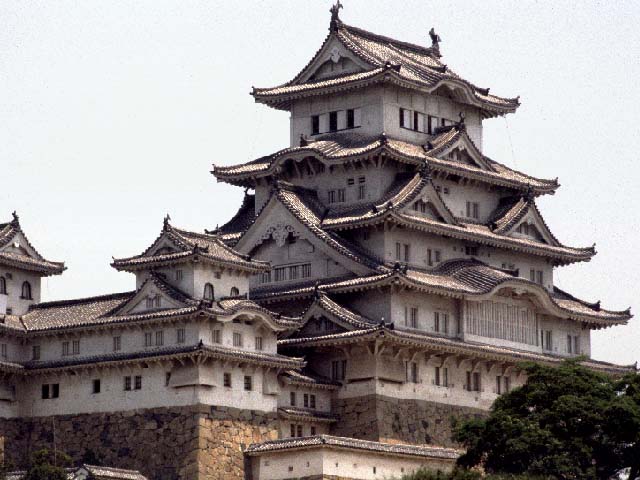About This Print
This print, derived from
Yoshida's 1926 print
Himeji Castle - Evening was published in the November, 1928
Enthronement Edition: The Japan Advertiser. The blocks were recut for this print and printed by the Yoshida family studio in an edition of 2000 prints. The print is described in the
Japan Advertiser as follows and the artist's biography is also provided, as reproduced below.
Enthronement Edition: The Japan Advertiser P. 5 |
Enthronement Edition: The Japan Advertiser P. 178 |
Enthronement Edition: The Japan Advertiser
Brief History of The Japan Advertiser
Founded in 1905,
The Japan Advertiser — an English-language newspaper later acquired by The Japan Times in 1940 - was the most influential English language newspaper in East Asia.
The Japan Advertiser provided a newssource for not only the expatriate community but for Japaneseseeking a clear and consistent source of news. The sale to
The Japan Times is said to have been done under duress, placed on the American owner by the Japanese militarists.
The Enthronement Edition
| | | | |
Canvas case with bone clasps
| Book cover
| Cover
| Title page
|
Sample Congratulations from Governments and Business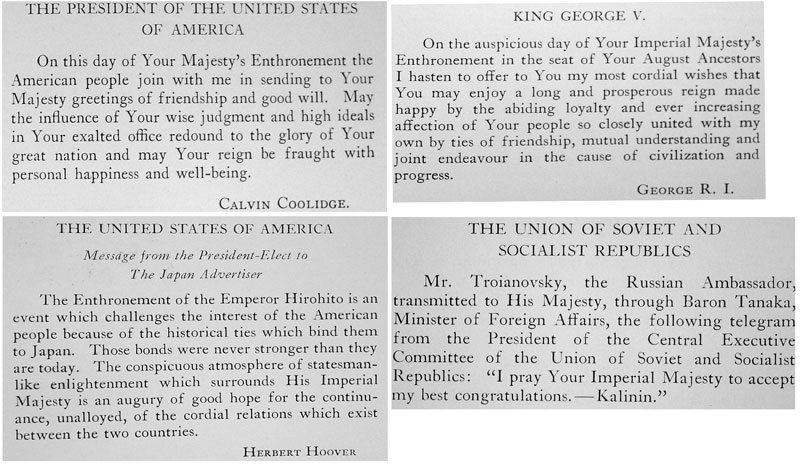 Messages from Calvin Coolidge, King George V, Herbert Hoover (President-elect) and Michail Kalinin (USSR titular head of state) Messages from Calvin Coolidge, King George V, Herbert Hoover (President-elect) and Michail Kalinin (USSR titular head of state)
|
Messages from Standard Oil, H. J. Heinz, Cadillac Motor Car and
Hudson Motor Car |
Himeji Castle
Himeji-jo (Castle) was originally built in 1346. Throughout its history it was owned by thirteen warrior families, not the least of which was Hashiba (Toyotomi) Hideyoshi, the commoner who rose to become the de facto military dictator of Japan during the Sengoku-jidai (Civil War Era). Lord Hideyoshi reconstructed the castle as a three storied structure in 1581. In 1601, Ikeda Terumasa, son-in-law of Tokugawa Ieyasu, the shogun who defeated the Hideyoshi family, transformed the castle into its present five tiered configuration with three smaller donjons. Unlike many European castles which had no real strategic defenses, Himeji-jo was built for warfare. The walls contain geometrically shaped
sama, openings through which archers and gunners shot at attacking troops and
ishiotoshi, an opening through which stones or boiling water were dumped on enemy soldiers scaling the wall. Despite its utilitarian purpose, the castle is nevertheless one of the most beautiful in Japan.
Print Details
| IHL Catalog | #26 |
| Title | Himeji Castle, Eveing (Himejijo-yu) (on left margin outside image)
|
| Series |
|
Artist
| Hiroshi Yoshida (1876-1950)
|
Signature
| Yoshida in Japanese printed lower left of image
|
| Seal | Hiroshi at lower left of image (see above)
|
| Publication Date | November 1928
|
| Edition | special edition of 2000 impressions from a recut block (see "About this Print" above) for the Enthronement Edition: The Japan Advertiser
|
| Publisher | Yoshida family studio
|
| Printer |
|
| Impression | excellent |
| Colors | excellent |
| Condition | excellent - tipped onto page 59 of the Enthronement Edition: The Japan Advertiser |
| Miscellaneous | according to John Mason, the Yoshida family studio printed the cover of the Enthronement Edition
|
| Genre | shin hanga (new prints)
|
| Format | oban tate-e
|
| H x W Paper | 15 3/8 x 10 1/4 in. (39.2 x 26 cm)
|
| H x W Image | 13 7/8 x 9 1/4 in. (35.2 x 23.4 cm)
|
| Collections This Print | Los Angeles County Museum of Art M.79.176.109 (noted as "later edition")
|
| Reference Literature | Revisiting Modern Japanese Prints: Selected Works from the Richard F. Grott Family Collection, Helen M. Nagata, Helen Merritt, Northern Illinois University Art Museum, 2007, p. 47, 80; Catalogue Raisonné - The Complete Woodblock Prints of Yoshida Hiroshi, Tadao Ogura, Abe Corporation, 1996, p. 170, plate 252. |
last revision:3/8/2019
 Messages from Calvin Coolidge, King George V, Herbert Hoover (President-elect) and Michail Kalinin (USSR titular head of state)
Messages from Calvin Coolidge, King George V, Herbert Hoover (President-elect) and Michail Kalinin (USSR titular head of state)


